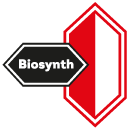
How Dapagliflozin API Is Manufactured: From Chemistry to Compliance
How Dapagliflozin API Is Manufactured: From Chemistry to Compliance
Dapagliflozin is a key active pharmaceutical ingredient (API) used for managing Type 2 diabetes. Its manufacturing involves complex chemical synthesis, stringent quality checks, and full compliance with global regulatory standards. At Bio-Synth, a WHO-GMP certified API manufacturer in Hyderabad, India, the process integrates advanced technology with deep compliance oversight. From raw materials to final packaging, every step ensures purity, safety, and efficacy for global B2B partners. This guide outlines the complete process ideal for procurement teams, regulatory decision-makers, and CDMO partners looking to source Dapagliflozin API from trusted manufacturers in India with confidence.
Introduction: Why Dapagliflozin Matters
Dapagliflozin is a sodium-glucose co-transporter 2 (SGLT2) inhibitor. It is widely prescribed for Type 2 diabetes and is gaining momentum for use in heart failure and chronic kidney disease.
With strong market demand and increasing global approvals, Dapagliflozin APIs are critical for formulators and B2B buyers alike.
Key Global Stats:
- Global Dapagliflozin market: Valued at USD 1.2 billion in 2023
- Forecasted CAGR: 6.4% from 2024 to 2030
- Top Exporters: India, China, US
- Use: Oral antidiabetic medications
India is a leading exporter of anti-diabetic APIs, and Hyderabad, particularly the Balanagar Industrial Area, is a hub for API synthesis.
Step-by-Step Breakdown: How Dapagliflozin API Is Manufactured
1. Selection of Raw Materials
The process begins with pharmaceutical-grade raw materials, such as:
- D-glucose derivatives
- Aromatic halides
- Organometallic reagents
- Catalysts (e.g., palladium-based)
These materials must be:
- Sourced from GMP-compliant suppliers
- Accompanied by CoA (Certificate of Analysis)
- Screened for impurities per ICH Q3A/B
Learn more about sourcing through pharmaceutical intermediates.
2. Core Chemical Synthesis
Step 1: Glycosylation
A protected glucose intermediate reacts with an aryl group to form Dapagliflozin’s core structure.
Step 2: Carbon-Carbon Coupling
A key step involving Suzuki coupling or Heck reaction, using palladium catalysts.
Step 3: Deprotection Reactions
Protecting groups are removed to yield the free Dapagliflozin base.
These reactions require:
- Inert atmosphere (nitrogen/flushed vessels)
- Precision temperature control
- In-process monitoring
3. Purification & Crystallization
Once synthesized, the crude API undergoes:
- Solvent extractions
- Activated carbon treatments
- Controlled cooling crystallization
Purity is enhanced to ≥99% through repeated recrystallization. This step is critical for:
- Removing traces of solvents
- Ensuring polymorphic consistency
- Achieving reproducible bioavailability
4. Drying, Milling, and Sieving
The purified material is:
- Vacuum-dried in stainless steel dryers
- Milled to a precise particle size (typically D90 < 75 μm)
- Sieved through GMP-compliant meshes
5. Quality Control and Testing
Bio-Synth employs multi-point testing:
- HPLC and GC for impurity profiling
- NMR and IR for structure confirmation
- LOD and Water content by Karl Fischer titration
Every batch comes with a full CoA, including:
- Polymorphic form
- Residual solvents
- Heavy metals
- Microbiological limits
Regulatory Compliance: Staying Ahead of Global Standards
Documentation Provided:
- DMF (Drug Master File)
- GMP compliance letter
- Stability data (ICH zones)
- TSE/BSE statements
- Impurity profile with justification
Proper compliance reduces approval cycle delays and ensures regulatory acceptance worldwide.
For a broader perspective, see our API manufacturing process overview.
Supply Chain: From Balanagar to B2B Global Network
Hyderabad’s Industrial Advantage
Bio-Synth operates in the Balanagar Industrial Area, a key location in Hyderabad’s pharmaceutical corridor. With excellent access to:
- Raw material markets
- Skilled chemists & QC personnel
- Major Indian ports (Mumbai, Chennai, Vizag)
This enables:
- Competitive pricing
- Fast delivery cycles
- Scalable batch sizes (lab to multi-ton scale)
Process Flow Diagram: Manufacturing Dapagliflozin API
graph TD
A[Raw Material Sourcing] –> B[Glycosylation Reaction]
B –> C[Coupling Reaction (Suzuki)]
C –> D[Deprotection]
D –> E[Crude API]
E –> F[Purification & Crystallization]
F –> G[Drying & Milling]
G –> H[Quality Testing & Packaging]
🔍 Explore Bio-Synth’s Dapagliflozin API manufacturers & suppliers in India or browse through types of APIs: small molecules, peptides & biologics.
Advantages of Partnering with Indian API Producers Like Bio-Synth
1. Cost-Effective Without Compromising Quality
Indian CDMOs like Bio-Synth offer:
- As low as 30–40% cost savings vs EU/US
- Zero compromise on quality or purity
- Transparent pricing for B2B bulk deals
2. Infrastructure + Expertise
With over 80 years of experience, Bio-Synth leverages:
- WHO-GMP infrastructure
- Dedicated R&D facilities
- Hazardous reaction handling systems
3. Regulatory-Ready
- Support for global DMF submissions
- Prompt response to queries
- Site audit readiness for clients
Matching the Right Grade for Your Formulation
Dapagliflozin is typically available in two key grades:
| Grade | Intended Use | Specifications |
| Pharma Grade | Tablet/Capsule manufacturing | ≥99% Purity, Specific polymorph |
| Research Grade | Pre-formulation or stability testing | ≥98% Purity |
Bio-Synth can also offer custom synthesis and CDMO engagements for:
- Fixed-dose combinations (e.g., Dapagliflozin + Metformin)
- Route optimization
- Impurity profiling
More details in advanced drug intermediates for custom projects.
India’s API Export Ecosystem: Fully Backed by Policy
The Indian government supports API manufacturing through:
- PLI Scheme (Production Linked Incentives)
- Dedicated pharma parks
- Easier environmental compliance protocols
As a result, Hyderabad now enables:
- 30% of India’s API output
- Shorter lead times for global buyers
FAQs
Why do buyers trust Indian APIs?
India, especially Hyderabad, is a leading hub for APIs such as dapagliflozin. With WHO-GMP certified facilities, Indian companies ensure global quality at competitive prices. Most also support DMF filings and custom synthesis.
What compliance documents are needed to import Dapagliflozin API?
Typically, buyers need:
- DMF (Open Part)
- GMP certificates
- CoA with full specification
- Stability data
- TSE/BSE declaration
A trusted supplier like Bio-Synth can provide all required documentation to meet global agency requirements.
Can Bio-Synth support custom-grade or CDMO services?
Yes. Bio-Synth offers flexible batch sizing, route development, impurity synthesis, and polymorph control in addition to standard API supply. Their CDMO services are tailored to B2B partners worldwide.
📩 Contact Bio-Synth today for bulk quotes, regulatory documentation, and CDMO collaboration.
At Bio-Synth, we don’t just manufacture Dapagliflozin API—we deliver compliance, purity, and partnership across borders. Based in Hyderabad’s Balanagar Industrial Zone, we’ve earned global trust with every molecule made.



Post a comment